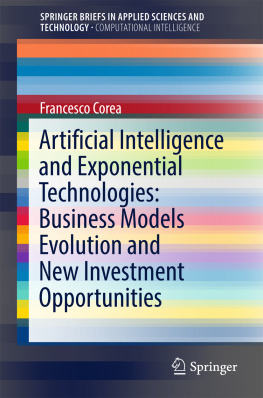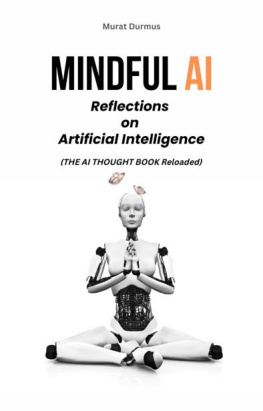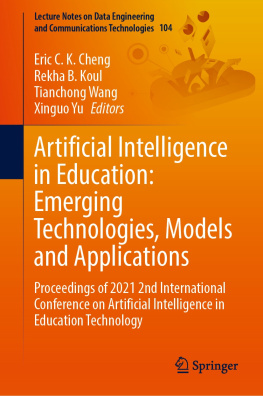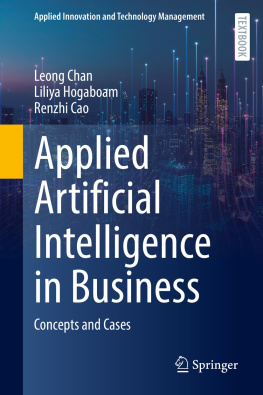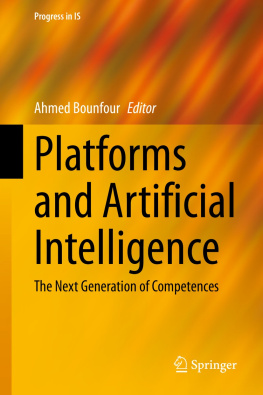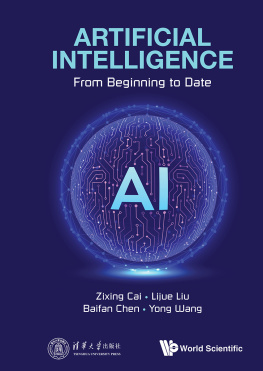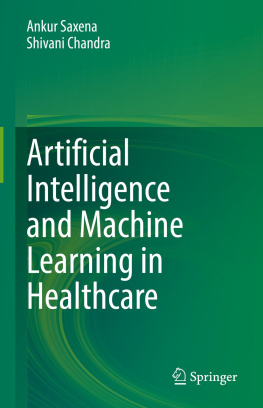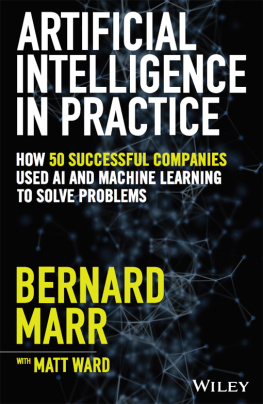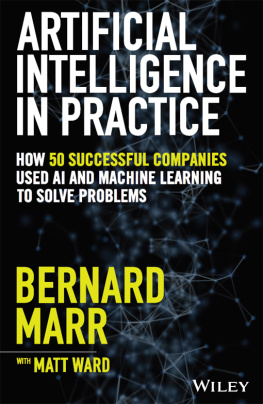Artificial Intelligence (AI) represents nowadays a paradigm shift that is driving at the same time the scientific progress as well as the industry evolution. Given the intense level of domain knowledge required to really appreciate the technicalities of the artificial engines, what AI is and can do is often misunderstood: the general audience is fascinated by its development and frightened by terminator-like scenarios; investors are mobilizing huge amounts of capital but they have not a clear picture of the competitive drivers that characterize companies and products; and managers are rushing to get their hands on the last software that may improve their productivities and revenues, and eventually their bonuses.
Even though the general optimism around creating advancements in artificial intelligence is evident (Muller and Bostrom ), in order to foster the pace of growth facilitated by AI I believe it would be necessary to clarify some concepts. The intent of this work is then manifold: explaining and defining few relevant terms, summarizing history of AI as well as literature advancements; investigating further innovation that AI is bringing both in scientific and business models terms; understanding where the value lies for investors; and eventually stimulating discussion about risk and future developments driven by AI.
1.1 Basic Definitions and Categorization
First, lets describe what artificial intelligence means. According to Bostrom (), AI today is perceived in three different ways: it is something that might answer all your questions, with an increasing degree of accuracy (the Oracle); it could do anything it is commanded to do (the Genie), or it might act autonomously to pursue a certain long-term goal (the Sovereign). However, AI should not be defined by what it can do or not, and thus a broader definition is appropriate.
An artificial intelligence is a system that can learn how to learn, or in other words a series of instructions (an algorithm) that allows computers to write their own algorithms without being explicitly programmed for.
Although we usually think about intelligence as the computational part of our ability to achieve certain goals, it is rather the capacity to learn and solve new problems in a changing environment. In a primordial world then, it is simply the attitude to foster survival and reproduction (Lo ). A living being is then defined as intelligent if she is driving the world into states she is optimizing for.
No matter how accurately we defined this concept, we can intuitively understand that the level of intelligence machines are provided with today is years far from the average level of any human being. While human being actions proceed from observing the physical world and deriving underlying relationships that link cause and effect in natural phenomena, an artificial intelligence is moved entirely by data and has no prior knowledge of the nature of the relationship among those data. It is then artificial in this sense because it does not stem from the physical law but rather from pure data.
We then have just defined what artificial intelligence is and what mean to us. In addition to that, though, there are two other concepts that should be treated as part of this introduction to AI: first of all, how AI is different and/or related to other buzzwords (big data, machine learning, etc.); second, what features a system has to own to be defined intelligent.
I think of AI as an interdisciplinary field, which covers (and requires) the study of manifold sub-disciplines, such as natural language processes, computer vision, as well as Internet of things and robotics. Hence, in this respect, AI is an umbrella term that gathers a bucket of different aspects. We can somehow look at AI to be similar to a fully-functional living being, and we can establish comparisons to figure out the degree of relationship between AI and other (sub)fields. If AI and the human body are alike, it has to possess a brain, which carries out a variety of tasks and is in charge of specific functions such the language (NLP), the sight (computer vision), and so on so forth. The body is made of bones and muscles, as much as a robot is made by circuits and metals. Machine learning can be seen as specific movements, action or thoughts we develop and that we fine-tune by doing. The Internet of things (IoT) corresponds to the human senses, which is the way in which we perceive the world around us. Finally, big data is the equivalent of the food we eat and the air we breathe, i.e., the fuel that makes us tick, as well as every input we receive from the external world that is captured by our senses. It is a quite rough comparison, but it conveys a simple way on how all the terms are related to each other.
Although many other comparisons may be done, and many of them can be correct simultaneously, the choice of what kind of features a system should have to be a proper AI is still quite controversial. In my opinion, the system should be endowed with a learning structure, an interactive communication interface, and a sensorial-like input digestion. Unfortunately, this idea is not rigorous from a scientific point of view, because it would involve a series of ethical, psychological, and philosophical considerations that should be taken into account.
Instead of focusing much longer on this not-provable concept, I rather prefer to illustrate how those characteristics would reflect the different types of AI we are (and we will) dealing with. An AI can indeed be classified in three ways: a narrow AI, which is nothing more than a specific domain application or task that gets better by ingesting further data and learns how to reduce the output error. An example here is DeepBlue for the chess game, but more generally this group includes all the functional technologies that serve a specific purpose. These systems are usually quite controllable because limited to specific tasks. When a program is instead not programmed for completing a specific task, but it could eventually learn from an application and apply the same bucket of knowledge to different environments, we face an Artificial General Intelligence (AGI). This is not technology-as-a-service as in the narrow case, but rather technology-as-a-product. The best example for this subgroup is Google DeepMind, although it is not a real AGI in all respects. We are indeed not there yet because even DeepMind cannot perform an intellectual task as a human would. In order to get there, much more progress on the brain structure functioning, brain processes optimization, and portable computing power development have to be made. Someone might think that an AGI can be easily achieved by piling up many narrow AIs, but in fact, this is not true: it is not a matter of number of specific skills a program can carry on, but rather the integration between all those abilities. This type of intelligence does not require an expert to work or to be tuned, as it would be the case for narrow AI, but it has a huge limitation: at the current state, it can be reached only through continuously streaming an infinite flow of data into the engine.

